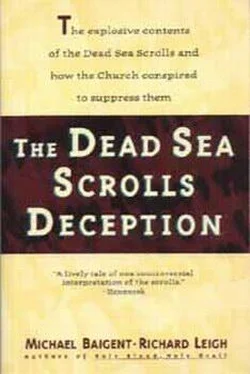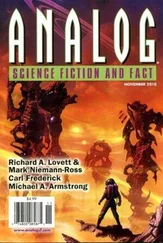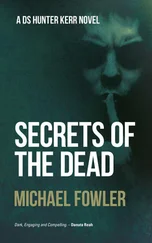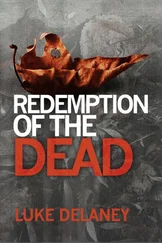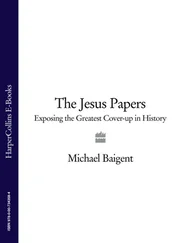On 29 November 1947, Sukenik slipped furtively out of Jerusalem and made the clandestine trip to Bethlehem. Here he was told in detail how the scrolls had been discovered and was shown three scrolls which were for sale — those which the Metropolitan had missed — and two of the jars that contained them. He was allowed to take the scrolls home, and was studying them when, at midnight, dramatic news came over the radio: a majority of the United Nations had voted for the creation of the state of Israel. At that moment, Sukenik resolved to purchase the scrolls. They seemed to him a kind of talismanic portent, a symbolic validation of the momentous historical events that had just been set in motion. 7
This conviction was shared by his son, Yigael Yadin, then chief of operations for the Haganah — the semi-clandestine militia which during the struggle for independence in 1948 was to evolve into the Israeli Defence Forces. For Yadin also the discovery of the scrolls was to assume an almost mystical significance:
I cannot avoid the feeling that there is something symbolic in the discovery of the scrolls and their acquisition at the moment of the creation of the State of Israel. It is as if these manuscripts had been waiting in caves for two thousand years, ever since the destruction of Israel’s independence, until the people of Israel had returned to their home and regained their freedom. 8
Towards the end of January 1948, Sukenik arranged to view the scrolls held by Metropolitan Samuel. The meeting, again, was to be clandestine. It was to occur in the British sector of Jerusalem, at the YMCA, where the librarian was a member of the Metropolitan’s congregation. Security was particularly tight here, the YMCA being situated directly across the road from the King David Hotel, which had been bombed, with great loss of life, in 1946. To enter the zone, Sukenik had to obtain a pass from the British District Officer, Professor Biran.
Endeavouring to pass himself off as just another scholar, Sukenik carried a handful of library books with him and made his way to the YMCA. Here, in a private room, he was shown the Metropolitan’s scrolls and allowed to borrow them for inspection. He returned them to the Metropolitan on 6 February, unable to raise sufficient funds to purchase them. By that time, the political and economic situation was too tense for any bank to authorise the requisite loan. The local Jewish authorities, faced with the prospect of impending war, could not spare anything. No one else was interested.
Sukenik tried to bring down the price, and the Syrian agent representing the Metropolitan arranged to meet him a week later. By that time, Sukenik had contrived to raise the money required. He heard nothing, however, from the Metropolitan or the agent, until some weeks later a letter arrived from the Syrian declaring that the Metropolitan had decided, after all, not to sell. Unknown to Sukenik, negotiations were already in train by then with American scholars who had photographed the scrolls and insisted a much better price could be elicited for them in the United States. Sukenik, needless to say, was mortified by the lost opportunity.
Metropolitan Samuel had contacted the Jerusalem-based Albright Institute (the American School of Oriental Research) in February, and a complete set of prints had been sent by the Institute to the acknowledged expert in the field, Professor William F. Albright, at Johns Hopkins University. On 15 March, Professor Albright replied confirming Sukenik’s conviction of the importance of the discovery, and setting the seal of approval on the Qumran texts. He also, unwittingly, provided support for those intent on attributing to the scrolls the earliest date possible:
My heartiest congratulations on the greatest manuscript discovery of modern times! There is no doubt whatever in my mind that the script is more archaic than that of the Nash Papyrus… I should prefer a date around 100 bc… What an absolutely incredible find! And there can happily not be the slightest doubt in the world about the genuineness of the MS. 9
On 18 March, a suggested press release was drawn up. In the meantime, the scrolls had been taken to Beirut and placed in a bank there for safekeeping. Later in the year, Metropolitan Samuel was to pick them up, and in January 1949 he took them to the United States, where they were to spend the next few years in a New York bank vault.
On 11 April, the first press release appeared, issued by Yale University, where Professor Millar Burrows — director of the Albright Institute — was head of the Department of Near Eastern Languages. The press release was not entirely truthful. No one wanted swarms of amateurs (or rivals) to descend on Qumran, and so the discovery was alleged to have been made in the library of Metropolitan Samuel’s monastery. But for the first time, fully a year after they’d initially surfaced, the existence of the Dead Sea Scrolls became known to the general public. On page 4 of its edition for Monday, 12 April 1948, The Times ran the following article under the headline ‘ancient mss. found in palestine’:
New York, April 11
Yale University announced yesterday the discovery in Palestine of the earliest known manuscript of the Book of Isaiah. It was found in the Syrian monastery of St Mark in Jerusalem, where it had been preserved in a scroll of parchment dating to about the first century BC. Recently it was identified by scholars of the American School of Oriental Research [the Albright Institute] at Jerusalem.
There were also examined at the school three other ancient Hebrew scrolls. One was part of a commentary on the Book of Habakkuk; another seemed to be a manual of discipline of some comparatively little-known sect or monastic order, possibly the Essenes. The third scroll has not been identified.
It was not an article calculated to set the world of scholarship aflame. So far as most readers of The Times were concerned, it would have meant little enough, and would anyway have been effectively up-staged by other news on the same page. Fourteen German SS officers who’d commanded extermination squads on the Eastern Front were sentenced to hang. According to the chief prosecutor, the judgment ‘was a landmark in the campaign against racial intolerance and violence’. There were also reports of a massacre in the Holy Land the previous Friday. Two Jewish terrorist organisations — the Irgun and the Stern Gang — had wiped out the Arab village of Deir Yasin, raping girls, exterminating men, women and children. The Jewish Agency itself expressed ‘horror and disgust’ at what had happened. In the meantime, according to other reports on the page, there was fighting in Jerusalem. Arab artillery had bombarded the western quarter of the city at dusk. Quantities of new field-guns had arrived from Syria and were aimed at Jewish sectors. The city’s water supply had again been cut off. Rail supplies had been disrupted. Renewed fighting for the Tel Aviv-Jerusalem road was expected to be imminent. Elsewhere in the Holy Land, Arab terrorists had murdered two British soldiers, and Jewish terrorists one. (Forty-two years later, while this was being checked and copied from microfilm in a local library, there was a bomb alert and the premises had to be evacuated. Plus ca change …)
Hostilities in the Middle East were to continue for another year. On 14 May 1948 — the day before the British mandate was scheduled to expire — the Jewish People’s Council met in the Tel Aviv Museum and declared their own independent state of Israel. The response from adjacent Arab countries was immediate. That very night, Egyptian aircraft bombed Tel Aviv. During the six and a half months of fighting that followed, Israel was to be invaded by troops from Egypt, Saudi Arabia, Transjordan, Syria, Iraq and Lebanon, while the King of Transjordan proclaimed himself monarch of all Palestine.
Читать дальше
